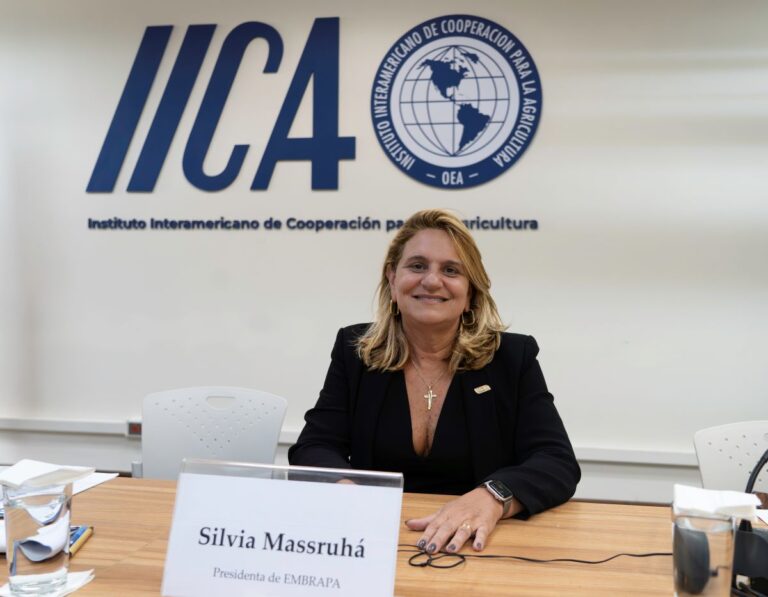Prevention and training; reproduction and genetics, as well as control methods will be the three main pillars of a global strategy, which IICA helped to design.

San Jose, 21 January 2020 (IICA) – The Inter-American Institute for Cooperation on Agriculture (IICA), fruit companies, producer associations, universities and other agriculture sector stakeholders, headed by Bayer Crop Science, will implement a global strategy of tangible actions to combat the Fusarium R4T disease that is affecting the production and trade of bananas – the fourth most important crop in the world.
The strategy will focus on prevention and training; reproduction and genetics, in addition to control mechanisms, as defined at a meeting in Germany, where IICA was in attendance.
The prevention and training component will aim at strengthening the relationship between industry, non-governmental organizations, buyers and extension officers. A training model will also be developed that will implement pilot programs in each region where the banana disease has spread.
As regards the second area, reproduction processes and programs will be assessed with a view to increasing their efficiency. Researchers will be supplied with germplasm to enable them to conduct experiments and to share the findings with stakeholders.
The third line of action will involve conducting tests with Bayer products to determine their effectiveness; will examine the relationship between nutrition, soil and the effectiveness of control agents and will develop tools that can quickly be applied to detect the presence of the fungus in banana plantations.
Gabriel Rodríguez, Manager of IICA’s Project Management Unit, confirmed that the international organization “will oversee the coordination of a global program with actions tailored for each country, region and continent, relying on the support of donors, which will provide resources to guarantee the effective tackling of this disease”.
Recently, there have been cases of Fusarium R4T in various parts of the world (In Latin America, it was detected in Colombia). It causes the wilting and dying of plants and also remains in the soil for a considerable period of time, thereby making it difficult to manage.
Data on Fusarium R4T
• The disease is usually spread through the movement of planting material and particles of soil that stick to people’s shoes, tools and vehicles, or when water run-off or irrigation carries the fungus from one place to another.
• On entering the vascular system of plants, the fungus triggers a breakdown of the mechanism that transports water and nutrients, which affects photosynthesis and causes the plants to die. To date, there is no chemical, biological or genetic control capable of counteracting this pathogenic action.
• There is no viable and completely effective treatment for soil or plants to control or cure Fusarium wilting. The fungal spores remain active in the soil for decades. Currently, the only available preventive measure is quarantining, which prevents the transfer of affected soil or planting material from infected areas to areas that are free from Fusarium R4T.
More information:
Gabriel Rodríguez Marqués, Manager, Project Management Unit – IICA.











